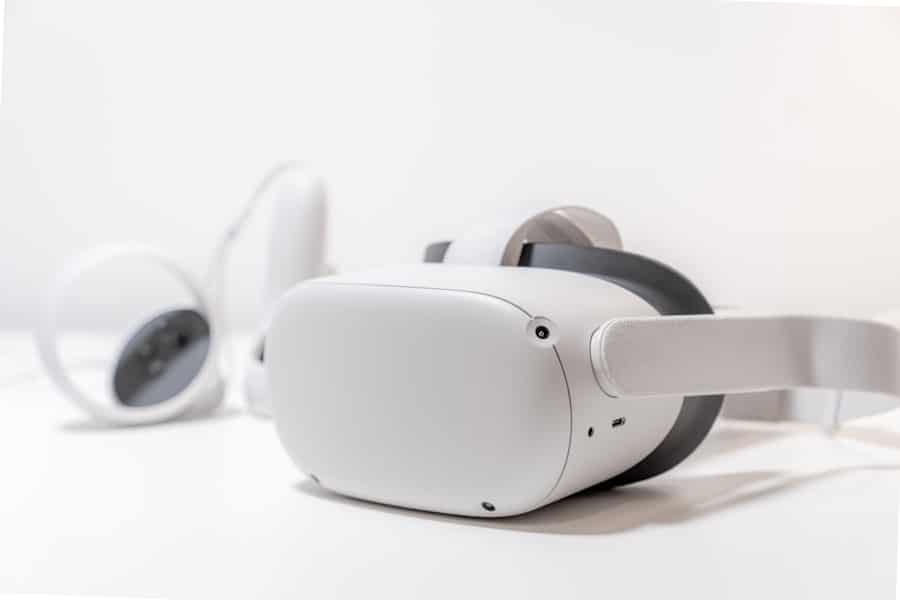In recent years, the landscape of career counseling has undergone a significant transformation, largely driven by advancements in artificial intelligence (AI). Traditional methods of career guidance, which often relied on standardized tests and one-on-one consultations, are being supplemented—and in some cases, replaced—by AI-powered tools that offer a more dynamic and personalized approach. These tools leverage vast amounts of data and sophisticated algorithms to provide insights that were previously unattainable, enabling students to make informed decisions about their future careers.
The integration of AI into career counseling not only enhances the efficiency of the process but also democratizes access to valuable resources, making it easier for students from diverse backgrounds to explore their options. AI-powered career counseling tools utilize machine learning and natural language processing to analyze individual preferences, skills, and market trends. By processing data from various sources, including job postings, educational requirements, and industry growth projections, these tools can generate tailored recommendations that align with a student’s unique profile.
This shift towards data-driven decision-making represents a paradigm change in how students approach their career paths, moving away from generic advice to a more nuanced understanding of their potential trajectories. As we delve deeper into the impact of AI on career counseling, it becomes clear that these innovations are reshaping the way students navigate their futures.
Key Takeaways
- AI-powered career counseling tools use artificial intelligence to provide personalized guidance and support to students in exploring and choosing career paths.
- AI has a significant impact on career counseling by offering data-driven insights, personalized recommendations, and efficient assessment of skills and interests.
- AI-powered tools help students explore career options by analyzing their skills, interests, and personality traits to suggest suitable career paths and majors.
- AI plays a crucial role in assessing students’ skills and interests by using algorithms to analyze data and provide accurate insights for career planning.
- AI-powered tools offer personalized recommendations by matching students with suitable majors based on their skills, interests, and career goals, enhancing their decision-making process.
The Impact of AI on Career Counseling
The impact of AI on career counseling is profound and multifaceted. One of the most significant changes is the ability to analyze large datasets quickly and accurately. Traditional career counseling often relied on anecdotal evidence and limited data sources, which could lead to biased or outdated advice.
In contrast, AI systems can sift through millions of data points in real-time, identifying emerging trends and opportunities that may not be visible through conventional methods. For instance, an AI tool might analyze job market trends across various industries and identify a growing demand for data analysts in a specific region, providing students with timely information that can influence their educational choices. Moreover, AI-powered tools can enhance the personalization of career counseling.
By utilizing algorithms that consider individual preferences, strengths, and weaknesses, these systems can offer tailored recommendations that resonate with each student’s aspirations. For example, a student interested in environmental science might receive suggestions for majors that align with sustainability initiatives or internships with organizations focused on climate change.
As a result, students are more likely to pursue fields that genuinely interest them, leading to higher levels of satisfaction and success in their chosen careers.
How AI-Powered Tools Help Students Explore Career Options

AI-powered career counseling tools serve as invaluable resources for students exploring various career options. These tools often feature interactive interfaces that allow users to input their interests and skills, generating a list of potential careers that align with their profiles. For instance, platforms like CareerExplorer or MyNextMove utilize AI algorithms to match students with careers based on their responses to a series of questions about their preferences and experiences.
This interactive approach not only engages students but also encourages them to think critically about their aspirations and the skills they possess. Additionally, these tools often provide comprehensive information about different careers, including job descriptions, salary expectations, required qualifications, and growth prospects. By presenting this information in an easily digestible format, AI-powered tools help students gain a clearer understanding of what various professions entail.
For example, a student interested in pursuing a career in healthcare can explore various roles—from nursing to medical research—along with the educational pathways required for each position. This wealth of information empowers students to make informed choices about their future while also highlighting the diverse opportunities available within a particular field.
The Role of AI in Assessing Students’ Skills and Interests
A critical aspect of effective career counseling is accurately assessing students’ skills and interests. AI-powered tools excel in this area by employing sophisticated assessment techniques that go beyond traditional questionnaires. For instance, some platforms utilize gamified assessments that engage students in interactive tasks designed to reveal their strengths and preferences in a more organic manner.
By analyzing performance data from these assessments, AI systems can provide insights into a student’s cognitive abilities, problem-solving skills, and even personality traits. Furthermore, AI can continuously refine its understanding of a student’s profile over time. As students engage with the platform—whether by taking assessments or exploring different career options—the AI learns from their interactions and adjusts its recommendations accordingly.
This iterative process ensures that the guidance provided remains relevant and aligned with the student’s evolving interests and skills. For example, if a student initially expresses interest in graphic design but later shows a preference for marketing strategies through their interactions with the tool, the AI can pivot its recommendations to suggest majors or careers that blend both fields.
Personalized Recommendations: How AI-Powered Tools Match Students with Suitable Majors
One of the standout features of AI-powered career counseling tools is their ability to deliver personalized recommendations for suitable majors based on individual profiles. By analyzing a combination of factors—including academic performance, extracurricular activities, and personal interests—these tools can suggest majors that align with a student’s strengths and aspirations. For instance, if a student demonstrates strong analytical skills and an interest in technology, an AI tool might recommend majors such as computer science or data analytics.
The algorithms behind these recommendations often take into account not only the student’s current abilities but also market trends and future job prospects. This forward-thinking approach ensures that students are not only choosing majors that resonate with them personally but also those that are likely to lead to viable career opportunities upon graduation. For example, as industries increasingly prioritize data-driven decision-making, students who are guided towards majors in data science or information technology may find themselves well-positioned for success in the job market.
Overcoming Challenges: Addressing Bias and Limitations in AI-Powered Career Counseling

Bias in AI Algorithms: A Significant Concern
Despite the numerous advantages offered by AI-powered career counseling tools, there are inherent challenges that must be addressed to ensure equitable outcomes for all students. One significant concern is the potential for bias within AI algorithms. If the data used to train these systems reflects historical inequalities or stereotypes, the recommendations generated may inadvertently perpetuate these biases. For instance, if an AI tool is trained on data that predominantly features successful male engineers, it may undervalue or overlook female candidates or those from underrepresented backgrounds who possess similar skills.
Mitigating Bias and Ensuring Fairness
To mitigate these risks, developers must prioritize transparency and inclusivity in the design of AI systems. This includes using diverse datasets that accurately represent various demographics and continuously monitoring algorithmic outputs for signs of bias. Additionally, incorporating human oversight into the process can help ensure that recommendations are fair and equitable. Career counselors can play a vital role in this regard by reviewing AI-generated suggestions and providing context or alternative options when necessary.
The Limitations of Self-Reported Data
Another limitation of AI-powered tools is their reliance on self-reported data from users. While these tools can analyze vast amounts of information quickly, they are still dependent on the accuracy and honesty of student inputs. If a student misrepresents their skills or interests—whether intentionally or unintentionally—the resulting recommendations may not be beneficial. To address this challenge, it is essential for AI systems to incorporate multiple data sources and validation methods to create a more comprehensive picture of each student’s profile.
The Future of AI-Powered Career Counseling: Potential Developments and Advancements
As technology continues to evolve at an unprecedented pace, the future of AI-powered career counseling holds exciting possibilities for further advancements and developments. One potential area for growth is the integration of virtual reality (VR) and augmented reality (AR) into career exploration tools. Imagine a scenario where students can virtually step into different work environments—such as hospitals, corporate offices, or creative studios—to gain firsthand experience of various careers before making decisions about their educational paths.
This immersive approach could significantly enhance students’ understanding of what different professions entail. Moreover, advancements in natural language processing could lead to more intuitive interactions between students and AI systems. Future tools may enable students to engage in conversational dialogues with AI chatbots that provide real-time guidance based on nuanced inquiries about career options or educational pathways.
This level of interactivity could foster deeper engagement and allow for more personalized support throughout the decision-making process. Additionally, as labor markets continue to evolve due to technological advancements and societal changes, AI-powered tools will need to adapt accordingly. Continuous updates based on real-time labor market data will be crucial for ensuring that recommendations remain relevant and aligned with emerging trends.
By harnessing the power of big data analytics and machine learning algorithms, these tools can provide students with insights into not only current job opportunities but also future career trajectories shaped by technological innovations.
The Benefits of AI-Powered Career Counseling for Students
The integration of AI into career counseling represents a significant leap forward in how students explore their futures. By providing personalized recommendations based on individual skills and interests while analyzing vast datasets for market trends, these tools empower students to make informed decisions about their educational paths and career aspirations. The ability to assess skills through innovative methods further enhances the effectiveness of these systems, ensuring that guidance is tailored to each student’s unique profile.
While challenges such as bias and limitations exist within AI-powered tools, ongoing efforts to address these issues will pave the way for more equitable outcomes in career counseling. As technology continues to advance, the potential for further developments—such as immersive experiences through VR/AR and enhanced conversational interfaces—will only serve to enrich the career exploration process for students. Ultimately, the benefits of AI-powered career counseling extend beyond mere recommendations; they foster a sense of agency among students as they navigate their paths toward fulfilling careers in an ever-evolving job market.
A related article to How AI-Powered Career Counseling Tools Are Helping Students Choose Majors is “What Is the Best Android Health Management Watches.” This article discusses the latest advancements in health management technology and how wearable devices can help individuals track their health and fitness goals. To learn more about this topic, you can visit the article here.
FAQs
What are AI-powered career counseling tools?
AI-powered career counseling tools are software applications that use artificial intelligence and machine learning algorithms to provide personalized career guidance and advice to students. These tools analyze a student’s skills, interests, and personality traits to recommend suitable career paths and majors.
How do AI-powered career counseling tools help students choose majors?
AI-powered career counseling tools help students choose majors by assessing their strengths, weaknesses, interests, and career goals. These tools use data-driven insights to match students with majors that align with their skills and interests, ultimately helping them make informed decisions about their academic and career paths.
What are the benefits of using AI-powered career counseling tools for students?
Some benefits of using AI-powered career counseling tools for students include personalized guidance, access to a wide range of career options, and the ability to make informed decisions about their academic and professional futures. These tools can also help students explore different career paths and understand the job market trends.
Are AI-powered career counseling tools accurate in their recommendations?
AI-powered career counseling tools use advanced algorithms and data analysis to provide accurate recommendations based on a student’s skills, interests, and personality traits. However, it’s important to note that these tools should be used as a supplement to traditional career counseling and not as a sole source of guidance.
How are AI-powered career counseling tools changing the landscape of career guidance?
AI-powered career counseling tools are changing the landscape of career guidance by providing more personalized and data-driven recommendations to students. These tools are also helping to bridge the gap between education and the workforce by aligning students with majors and careers that are in demand in the job market.

